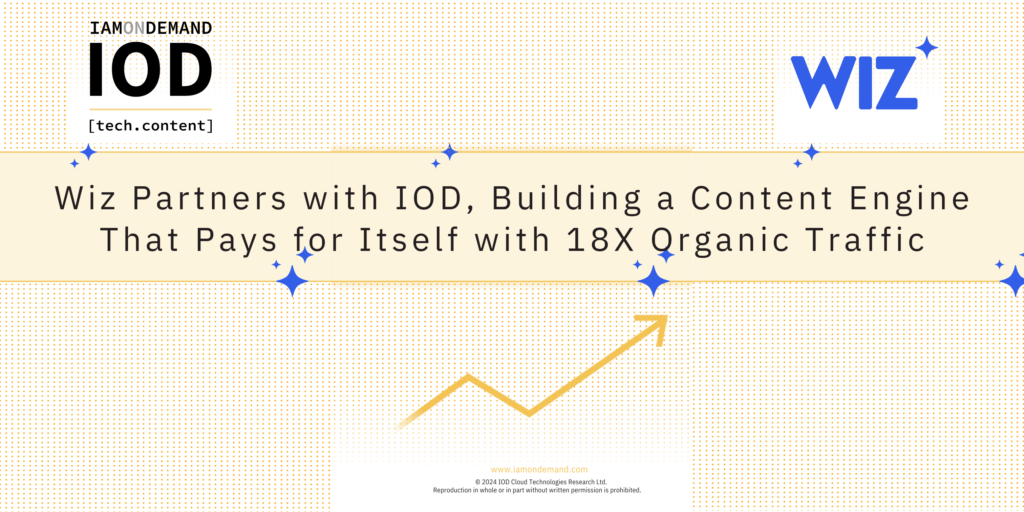By Ofer Prossner, VP Operations, IOD
When people ask me if I like to write, I admit that writing can sometimes be a pain, especially if the assignment is one I’m not too interested in or too knowledgeable about. But in such situations, in the face of freezing up and not writing at all, I take the advice of the famous film director David Lynch, and I “just write.” Okay, Lynch himself didn’t say those words, but a story he told at a lecture I once attended inspired me to try this method.
Lynch was asked by an audience member what his “process” was in creating a particular film. The director told of how he and the crew went to the movie set the first day and shot a scene, and all was well, and the day was finished. Then, later that night, when he slept, he had a dream. When he awoke, he said, he just had to shoot that dream, even though the dream wasn’t connected at all to the first scene they had already shot.
So they did just that. And when the day was complete, he went home, went to sleep, at which point he had another dream he again had to shoot the next day. The dream was completely unrelated to the first two scenes, but he figured he would “find a way to string all of the scenes together.”
Lynch may have been exaggerating a little with this anecdote, but what he said at that lecture freed me with my own writing and creative process. I considered that I could let my imagination run wild by “just writing,” and something good could come from it.
But What About Deadlines?
That’s one way of approaching a challenging writing assignment. The second way comes in handy, however, when you have a deadline and when you have a particular objective. And, for we do here at IOD, the second way is the way we operate. This means creating compelling articles, on time, and with particular objectives: strengthen brand presence, drive demand, increase leads, and encourage sales. To do this, we, of course, need to create content that is interesting, cohesive, and to the point. “Just write” could work well in such a situation, but even if it does, it will work a lot better if you figure out the topic first. In fact, we insist our content creation relationships with our customers begin with the creation of an agreed-upon list of topics. For most of our customers, this means a six-week editorial research, strategy, and planning phase that ends with a long list of topics to slot into an editorial calendar.
What We Mean When We Say “Topics”
Sometimes customers come to us and say, “but we already have topics.” What I’ve found, however, is that if you are a devops company, your topics tends to be “CI/CD,” “Docker,” “K8s.” Broad ideas within your domain, and not “topic” enough to direct the IOD expert on how to focus the article. At IOD, when we say topics, we really mean draft titles: what type of title would draw your target audience in. And we come up with those topics after a very careful review of your internal materials and an analysis of the market.
Our Process for Coming Up with Topics
Our editorial research and strategy phase begins with a data-driven approach: observing what competitors and users talk about. For this, we use tools such as buzz sumo, but there are others with the same capacity. Another approach, is to dig inside the customer’s organization: the people who best know your product should ideally be those who’ve created it or who work to see it in the marketplace. It makes sense to go to the sales and customer success departments to get input as to what the need is among the company’s buyers; whether it’s a feature that they might want and don’t know exists in the product the company aims to see, or a solution to a general recurring issue with the platform. Now, we’re getting closer to “real” topics.
Fine Tuning Your Message
But is it enough to start writing? The answer to that is a resounding NO. Admission: When I first arrived at IOD, we actually would start writing once we had a topic. Say, SQL vs NoSQL. Ready, set, write! Well, let’s just say that too many times the results were not satisfactory.
The reason for failing with just-a-topic comes down to the fact that the topic, even a really focused one, is only the start of making sure we hit the target with content. SQL vs NoSQL is a great example because this topic would be approached one way if trying to reach a newbie than it would for seasoned database professionals. It will be even more different depending on whether the expert simply needs to prepare a short blog post as an introduction to the topic versus a 5000-word e-book that researches absolutely EVERYTHING on the topic. These considerations are there to help develop the topic into content, even before you write. (In IOD, we call this “the brief stage”, and we take it extremely seriously).
Conclusion
If there is one thing I would like you to take from this blog it’s that we at IOD are not David-lynching-it. He’s a film genius, and those guys can afford to do things differently. For the rest of us, planning and developing and then planning some more should be the cornerstones of the content creation process, just as you wouldn’t start coding a new feature without a proper specifications document. And, if you are embarking on the content journey for your company, make it easier and come talk with us. We would love to give you a hand. 🙂








